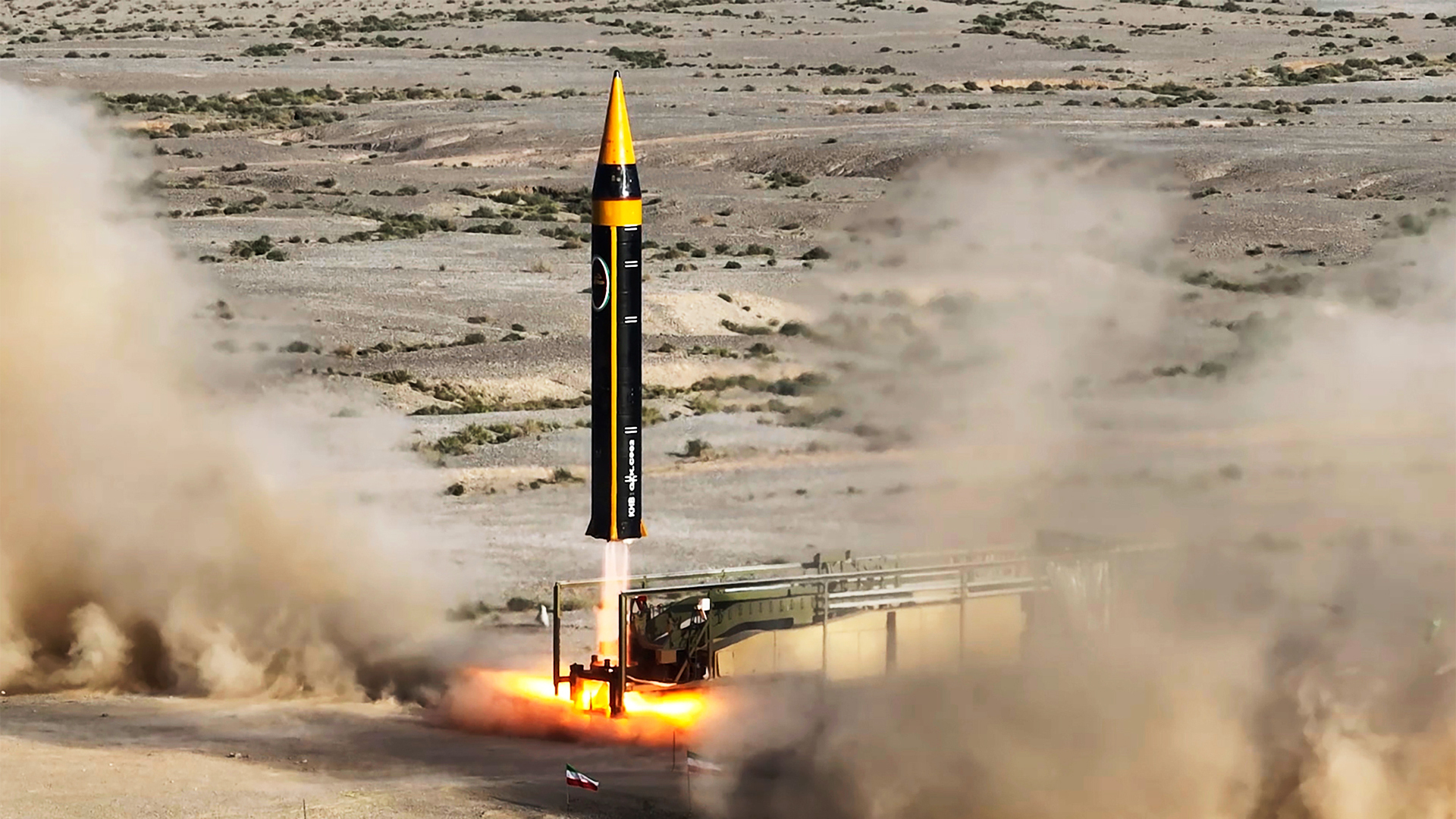Fatima al-Samadi, a researcher at the Al Jazeera Center for Studies, an expert on Iranian affairs, said that the mutual threats between Israel and Iran are actual threats that are not usual, and do not fall within the war of words between the two sides, including the detection of new types of armaments and the launch of military exercises.
Speaking to the "Beyond the News" program (2023/5/25), she explained that the escalation of the conflict in the gray area between the two parties has taken an escalating dimension and may be ripe to reach higher degrees of escalation, pointing out that the level of movement in the region predicts this.
This comes against the backdrop of Iran's unveiling of a new ballistic missile with a range of two thousand kilometers and carrying a warhead weighing 1500,<> kilograms, and confirming that it is a message to its enemies that it is determined to protect its security and friends.
This coincides with Israel's announcement of its intention to launch military exercises next week, simulating war on several fronts, and positive statements from Washington and Tehran on Iran's nuclear file.
Strengthening deterrence
Fatima al-Smadi said in her interview with the "Beyond the News" program that what Iran revealed is important within the framework of the dimensions of the conflict in the region, given that one of Iran's main strengths is its missile capability, and therefore this addition is in the framework of strengthening the deterrence force in the face of Israeli threats mainly.
She also considered that this comes within a new approach to the region, the most important of which is Iran's quest to find a new equation for confrontation with Israel in Syria, pointing in this context to the news that Tehran seeks to strengthen defense systems in Syria, and talk about providing Damascus with the fifteenth system of the "Som Khordad" system similar to the Russian "S-300" system.
Al-Smadi believes that the countries of the region need to find a common regional security system that guarantees their interests and security, and that the step of resuming Saudi-Iranian relations may be the beginning of creating this system, especially if the matter turns into practical steps.
She pointed out that Tehran - with regard to the file of its nuclear project - has been pursuing in recent months a policy based on defusing tension with the Atomic Energy Agency, and that it is keen not to withdraw completely from the path of negotiations, but if it is returned, it will not mean opening a new page between Tehran and Washington, as tension will remain present.
Israeli failure
Khalil al-Anani, a professor of political science and international relations and a researcher at the Arab Center in Washington, believes that these mutual threats come in the context of points related to the Saudi-Iranian rapprochement, which thwarted pre-prepared Israeli plans aimed at forming a kind of Sunni-Arab-Israeli front against what Israel sees as an Iranian threat.
Among these points, according to Al-Anani's talk to the program "Beyond the News", is the rehabilitation of the regime of Bashar al-Assad and its integration into the Arab system, which strengthens the space for Iran's presence in the northern region, where Israel sees this as a danger, and then the timid talk about the resumption of negotiations between Washington and Tehran, which is also an important file for Tel Aviv.
The latest point is the internal crisis in Israel, where Israeli governments usually export internal crises with regard to the external enemy.
But at the same time, he stressed the need to take Israeli threats seriously, noting that the US position is ambiguous and ambiguous, which encourages Israel to exploit this in light of the weakness of the administration of US President Joe Biden due to his preoccupation with various other files.
Al-Anani argued that it is difficult to expect Israeli strikes on Iran without an American green light and European approval, and he also believes that it is difficult to give this approval at this stage, because any strikes would be a very dangerous shift that may open the door to a regional war whose results are difficult to predict on all sides.
The expert in international relations believes that there is an urgent need to reduce escalation in the Arab region, pointing out that any progress in the Iranian nuclear file will reflect positively on the region, and that it is not in the interest of Arab countries to have any confrontation with Israel with Iran, as it is difficult to stop the consequences and effects on them.

